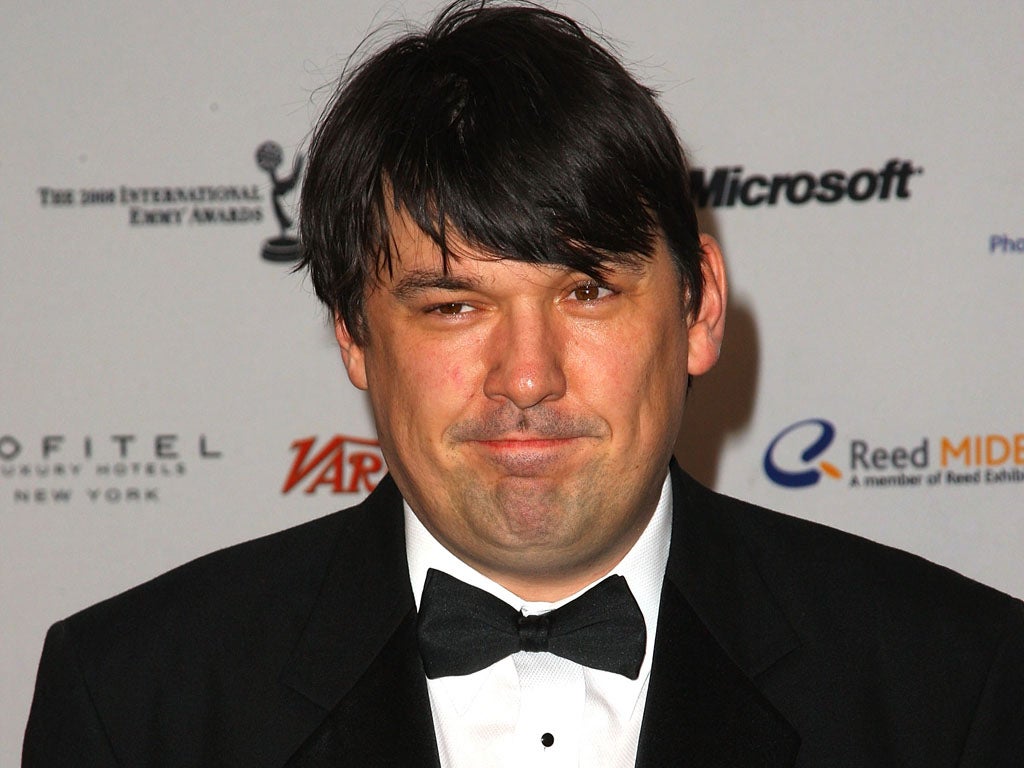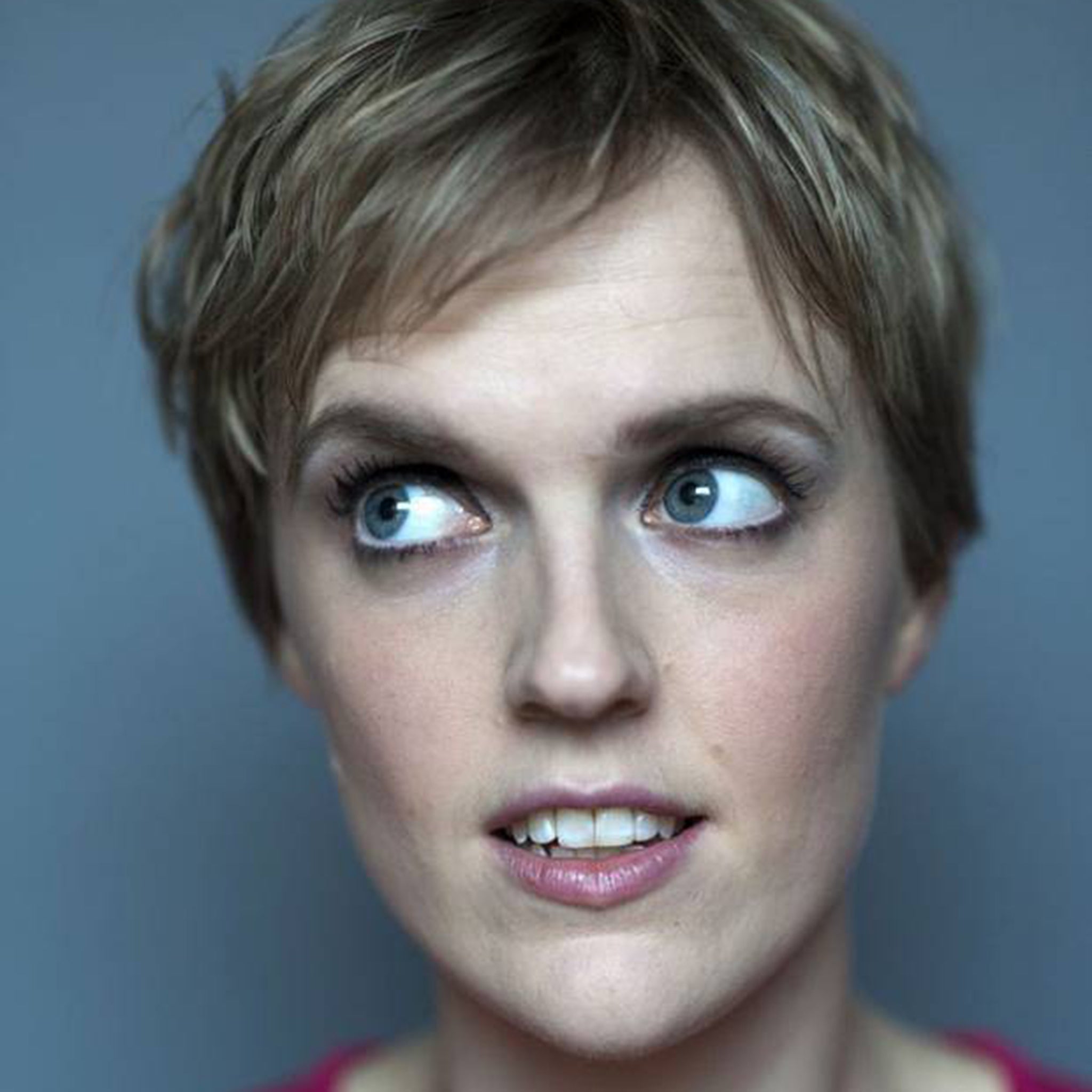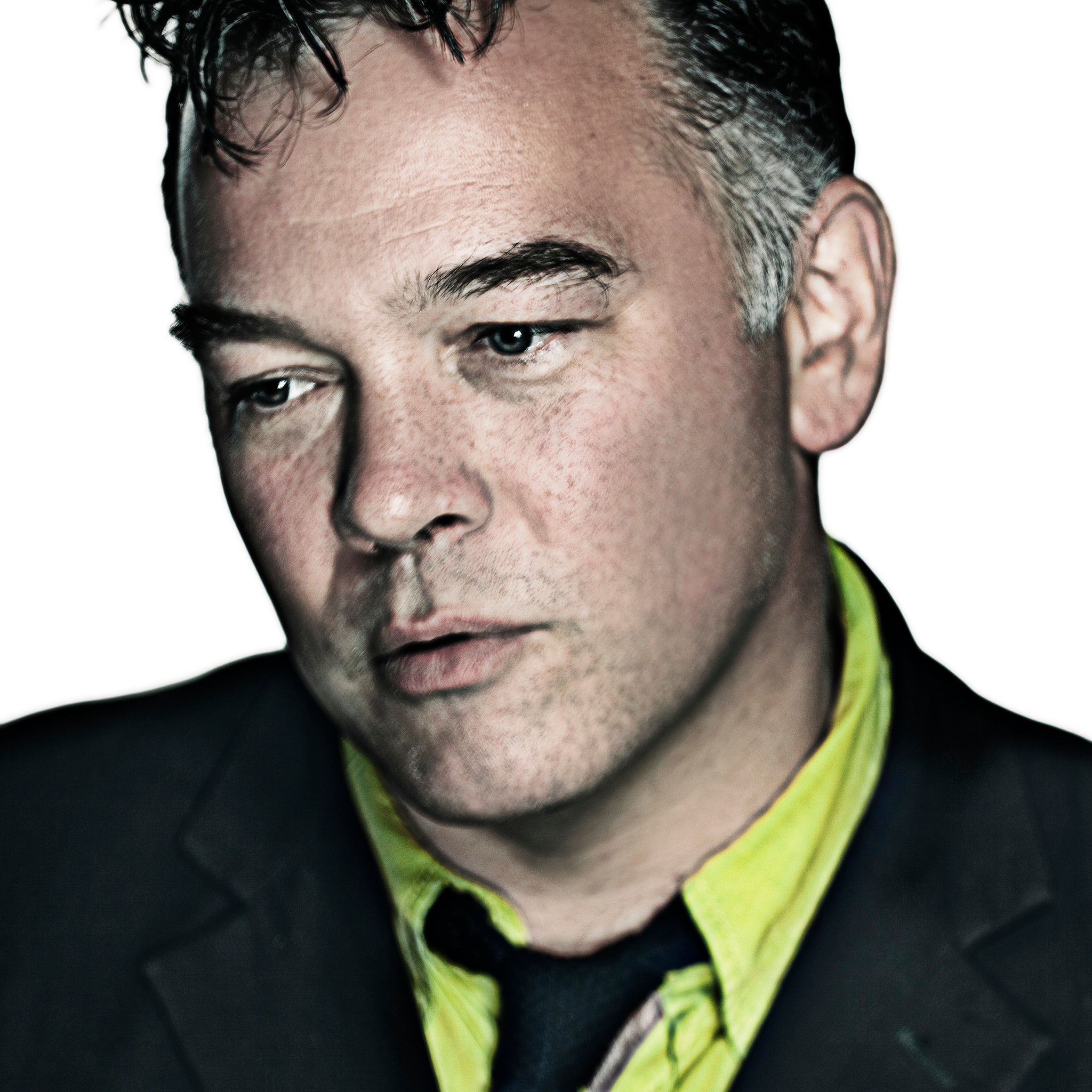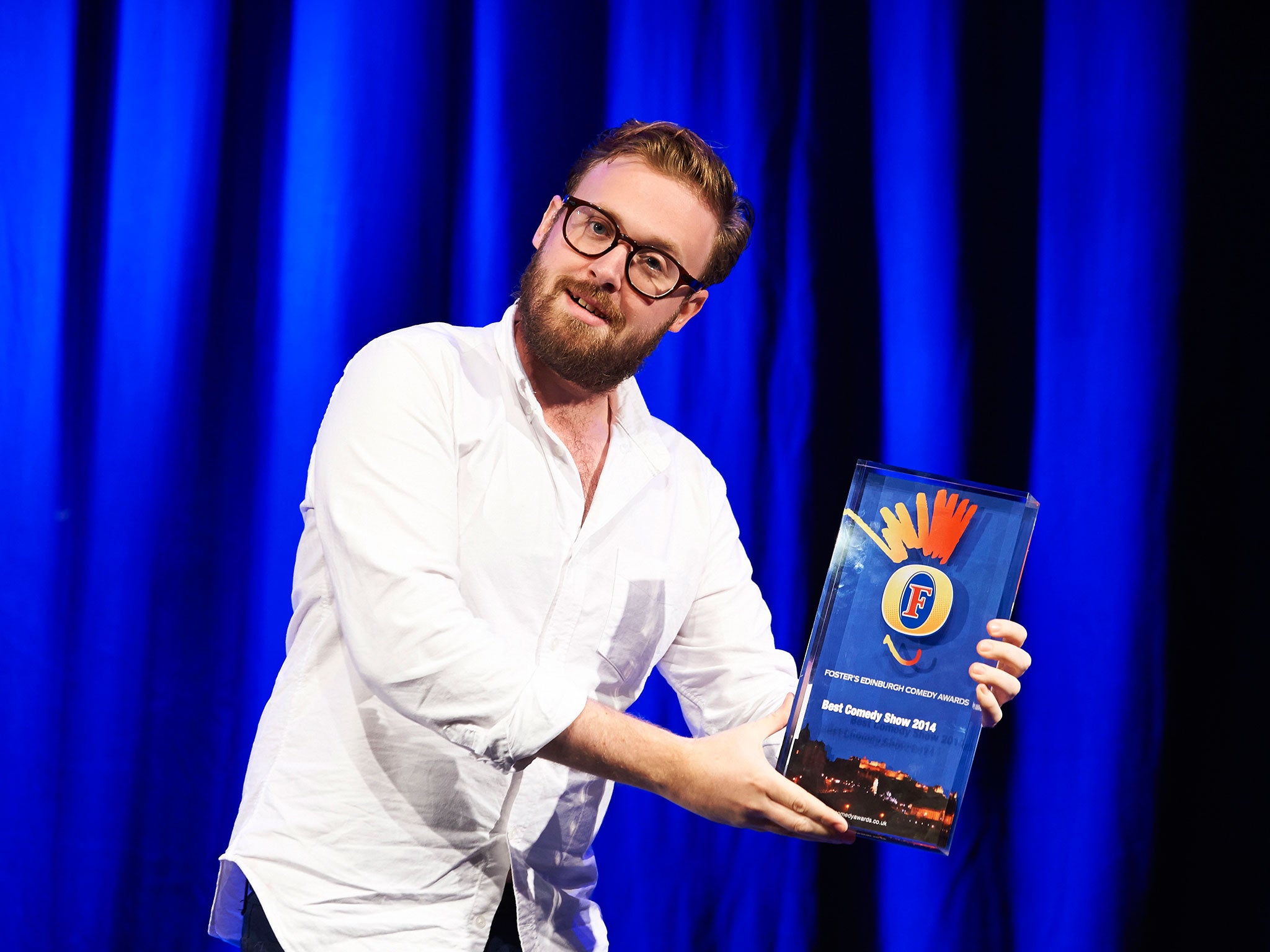How do you write good comedy? Some of Britain's finest comedians share their knowledge
Writing comedy for stage or broadcast is a precision craft that can take years to master - top practitioners give Bruce Dessau some tips

Your support helps us to tell the story
From reproductive rights to climate change to Big Tech, The Independent is on the ground when the story is developing. Whether it's investigating the financials of Elon Musk's pro-Trump PAC or producing our latest documentary, 'The A Word', which shines a light on the American women fighting for reproductive rights, we know how important it is to parse out the facts from the messaging.
At such a critical moment in US history, we need reporters on the ground. Your donation allows us to keep sending journalists to speak to both sides of the story.
The Independent is trusted by Americans across the entire political spectrum. And unlike many other quality news outlets, we choose not to lock Americans out of our reporting and analysis with paywalls. We believe quality journalism should be available to everyone, paid for by those who can afford it.
Your support makes all the difference.Writing comedy is not easy – which is why next weekend, aspiring comedy writers will be gathering in Llandudno in north Wales for the second annual Craft of Comedy Writing conference.
There, commissioning editors, producers, production company bosses and comedians will be divulging their trade secrets in a range of talks, discussions and networking sessions. It’s a great way to learn more about the industry – although it does cost £60. For a cheaper option, we have asked some the biggest names in comedy for their pithiest writing tips.
(For more information on the Craft of Comedy Writing Conference see www.venuecymru.co.uk)
Andy Hamilton
Sitcom writer
His new series ‘Ballot Monkeys’, a satirical sitcom set around the General Election, starts on C4, Tuesday at 10pm.
1) Become a ruthless editor of your own stuff. You have to be brutal.
2) Learn to be concise. Pay attention to the rhythm of a sentence and how a joke unfolds. Just moving an adverb can change it. I’m still learning.
3) Make sure you invest in a character. Anyone can write jokes. Well, almost anyone. But if you are writing a sitcom it’s the characters that make it interesting. They have to resonate.
Reece Shearsmith

Actor/comedy writer
The latest series of Shearsmith’s ‘Inside No 9’, co-written with Steve Pemberton, is on BBC2 on Thursdays.
I think it’s important when writing, and especially sketches, that you very quickly let the audience in on what it is they are supposed to find funny. What is “the thing of it?” Let them in on the joke as quickly as possible. “Oh – I see, it’s a clown that doesn’t like children.” Or “Oh I get it – it’s a squeamish surgeon”. The quicker you get to that penny-dropping moment, the longer your audience have to enjoy the situation and find it funny. Also, try to be as lean as possible. Come in late, and go out early. More often than not, you can lose half of a scene quite easily and still impart the story. And above all else – hide the exposition! No one wants to sound like they are narrating facts. A neat trick is to hide exposition inside a joke. That way it feels valid, and its presence is disguised by a laugh.
Graham Linehan

Sitcom writer
To borrow an image from David Lynch, you’re looking for the big fish. The tiddlers flashing about just below the surface – the trite observations, the easy targets, the established joke-constructions – you need to ignore them and wait for the big one. An image or scene that makes you double over with laughter and could only have come from deep within your subconscious. The good news is that once you have it, the smaller jokes leading up to and away from the scene/sequence/sight gag will also feel fresh. To give you an example from my own work, Mrs Doyle wondering where the “perfectly square bit of black dirt” on the window came from is a set-up so odd the audience doesn’t even think of it as a set-up, and enjoy it for its own sake. So when Ted appears at the window with a Hitler moustache (and that’s the big fish, that’s what Arthur Mathews and I thought of first), one of the reasons it works is that the audience didn’t realise we were setting them up.
Holly Walsh

Stand-up/TV and radio writer
Walsh has previously written BBC3 sitcom ‘Dead Boss’ with Sharon Horgan, and her new radio series ‘Best Behaviour’ starts on Radio 4 on 7 May at 6.30pm.
My tip for writing comedy would be to find someone to collaborate with. OK, so you’ll share the money, but you’ll also share self-doubt and inner loathing, so it kind of balances out. My favourite days are sitting in a room with someone else and trying to make them laugh. You might then have to go off and work stuff up on your own, but at least you know one person has found it funny. Oh, and move around. You’d be surprised how many problems are solved walking to and from the loo. So drink plenty of tea.
Ged Parsons
TV writer
The ‘Have I Got News for You’ writer will be speaking at the Craft of Comedy Writing Conference on 24 April.
Study comedy you like – see how it works. Don’t copy it, be inspired by it. Learn how to present scripts. Spell everything correctly – detials matter. That was a joke. Send a little of your best material to the creators of programmes you like – tell them why you like their work. Ensure that some of these programmes are BBC open-access radio-comedy shows – these are probably your best way in. Keep writing – then, keep writing. Maybe hold producers hostage, until they use your work. Do lots of work for free – apparently, it’s good exposure. One of the previous two points is bad advice (clue: it’s not the “hostage” one.)
Stewart Lee

Stand-up
He is on tour with ‘A Room with a Stew’ until January 2016. Details at stewartlee.co.uk
I have no idea how to advise anyone to write comedy today, as I started 25 years ago when the economic climate and the way arts were valued was entirely different. The jobs that paid me, and bought me time, while I learned to write, would now be unpaid internships. The English degree that I did would now be impossibly expensive for someone from my background. And the 47-year-old me wouldn’t want the 21-year-old me to sign with one of the few big agencies that essentially control what gets commissioned. I think it’s a waste of time for young people to try and write comedy today.
John Kearns

Stand-up
The 2014 Foster’s Edinburgh Comedy Award winner has a new sitcom, ‘Top Coppers’, starting on BBC3 on 26 May.
Advice commonly given to young comics is “be honest” and “do what makes you laugh”. I always found it a paradox. I was brought up on absurdism yet how can that go hand-in-hand with how I feel? The trick was to detach myself from my usual melodramatic, anxious self. I put on a wig, some false teeth and walked around like Rooster from the play Jerusalem. I felt stupid, silly and bizarrely free. Crucially it allowed me to be honest. It was this resignation that allowed me to firstly be funny and secondly say what I wanted. I had a “Oh, I’m that guy” moment. When you have that, the writing follows.
Justin Moorhouse

Stand-up/actor
He will be speaking at the Craft of Comedy Conference on 24 April. More info at justinmoorhouse.com
To ask a stand-up comedian to write 100 words on what it takes to write stand-up comedy is perhaps the cruellest trick a journalist can play. It invokes the fear that ...
1. A writer will soon discover we don’t actually write.
2. Shit. Whatever I write needs to be funny.
3. Applying the rule of three doesn’t necessarily make it funny.
The only advice I can give any comedian is this – just write.
Do the work.
Josh Widdicombe

Stand-up/sitcom writer
His C4 show ‘The Last Leg’ returns for three election specials from this Thursday, while his new BBC3 sitcom, ‘Josh’, will be screened later this year.
Listen to what other people think of your work. It’s all well and good being a genius who doesn’t need their artistic vision compromised, but if (like me) you are nowhere near a genius then it is best to take people’s criticism on board and to then try to improve. Which admittedly are pretty futile tips, really, as if you don’t agree with them you wouldn’t be reading an article about writing tips in the first place.
Susan Calman
Making her point: Susan Calman in 'The Alternative Comedy Experience'
Stand-up
Susan Calman is touring nationally. For more information, see susancalman.com
Write often and write lots. Eventually, or at least hopefully, the rubbish will lessen and the gold will increase. Use language deliberately, and I don’t mean punctuation by swearing. Details can be so important. If you’re writing a joke about a car what type of car is it? Does it help to mention the colour? “She arrived in a puce Nissan Micra” can help an audience get an immediate idea of a character. Concise use of language is a joke writers’ secret power. “Someone came to my door last night and indicated I should answer it”, is far less efficient than “Knock, Knock”. Most importantly find a hat to wear while you’re writing. All successful comedy writers have one. I have a top hat. It makes me 36% funnier.
Ross Noble
‘Ross Noble Freewheeling’ is on Dave, Tuesdays at 10pm.
The only way to get good at stand-up is to do it lots and lots until you are as comfortable onstage as you are off. Some people are good quicker but to be really good is about putting in the hours on stage. When most people start they don't know what there point of view is onstage. Until you figure that out you are just someone reciting a list of jokes. Often newer comics will do any joke they think of even if it contradicts previous ideas. It may get a laugh but leaves the audience confused as to who they are.
Shappi Khorsandi
Stand-up
She is currently on tour: see dates at shappi.co.uk.
In stand up, the important stuff goes on before any actual writing happens. I’ll have a strong emotional response to something, an incident, something I’ve seen or heard. If it dances about in my head bothering me, I get on a stage and say it in front of an audience. If I’m relaxed enough, a punchline will eventually arrive. Then I write it down, do it again better, write that down. Each time I tell it it becomes sharper.
Join our commenting forum
Join thought-provoking conversations, follow other Independent readers and see their replies
Comments